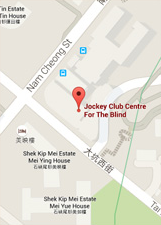Stay Connected with Various Exchange Activities
Vision Unlimited — Exploring Macau Exchange Tour
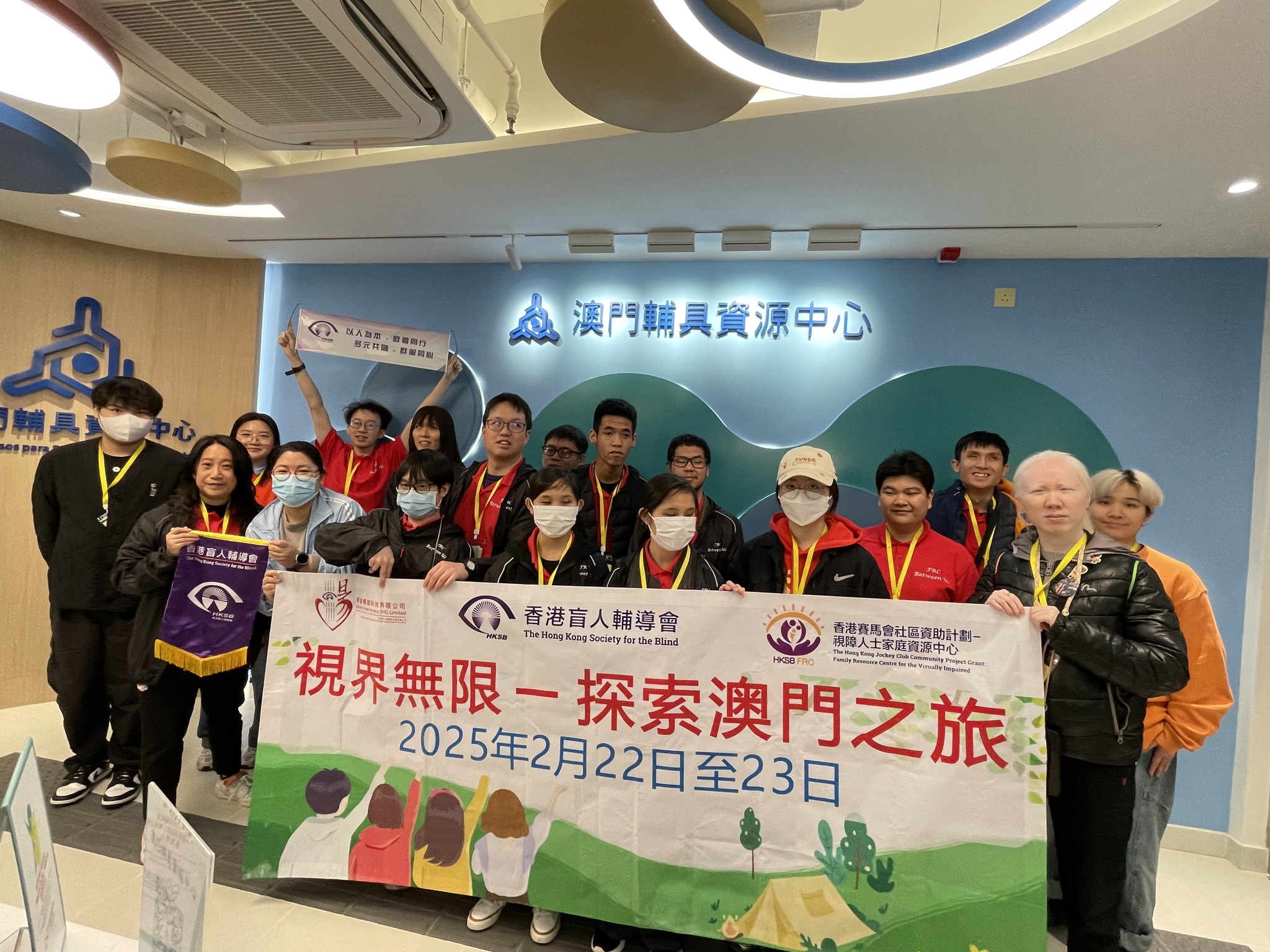
The two-day one-night "Vision Unlimited — Exploring Macau Journey" co-organized by The Hong Kong Jockey Club Community Project Grant: Family Resource Centre for the Visually Impaired and Barrier Free Access (HK) Limited was successfully completed from February 21 to 22 this year.
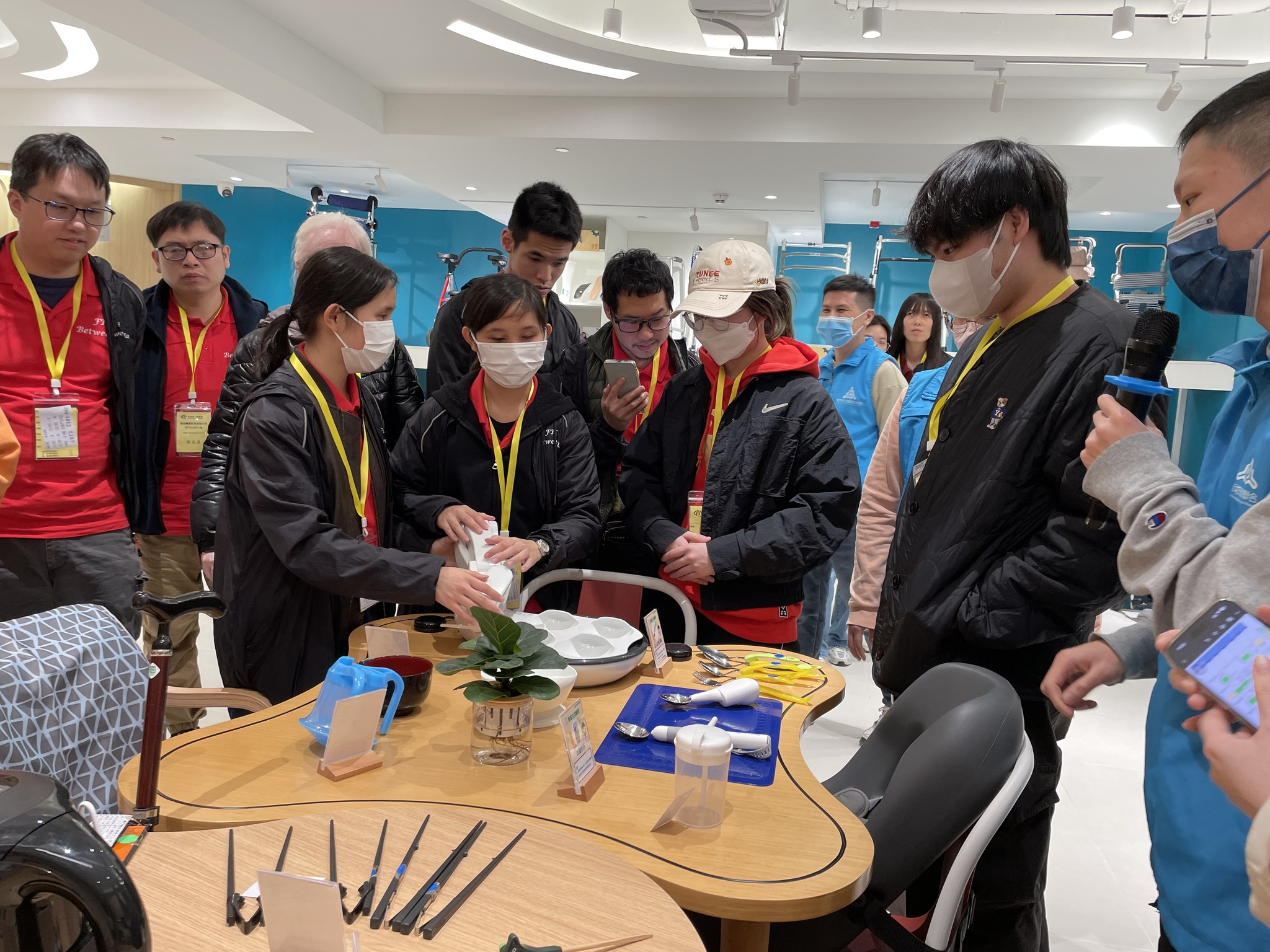
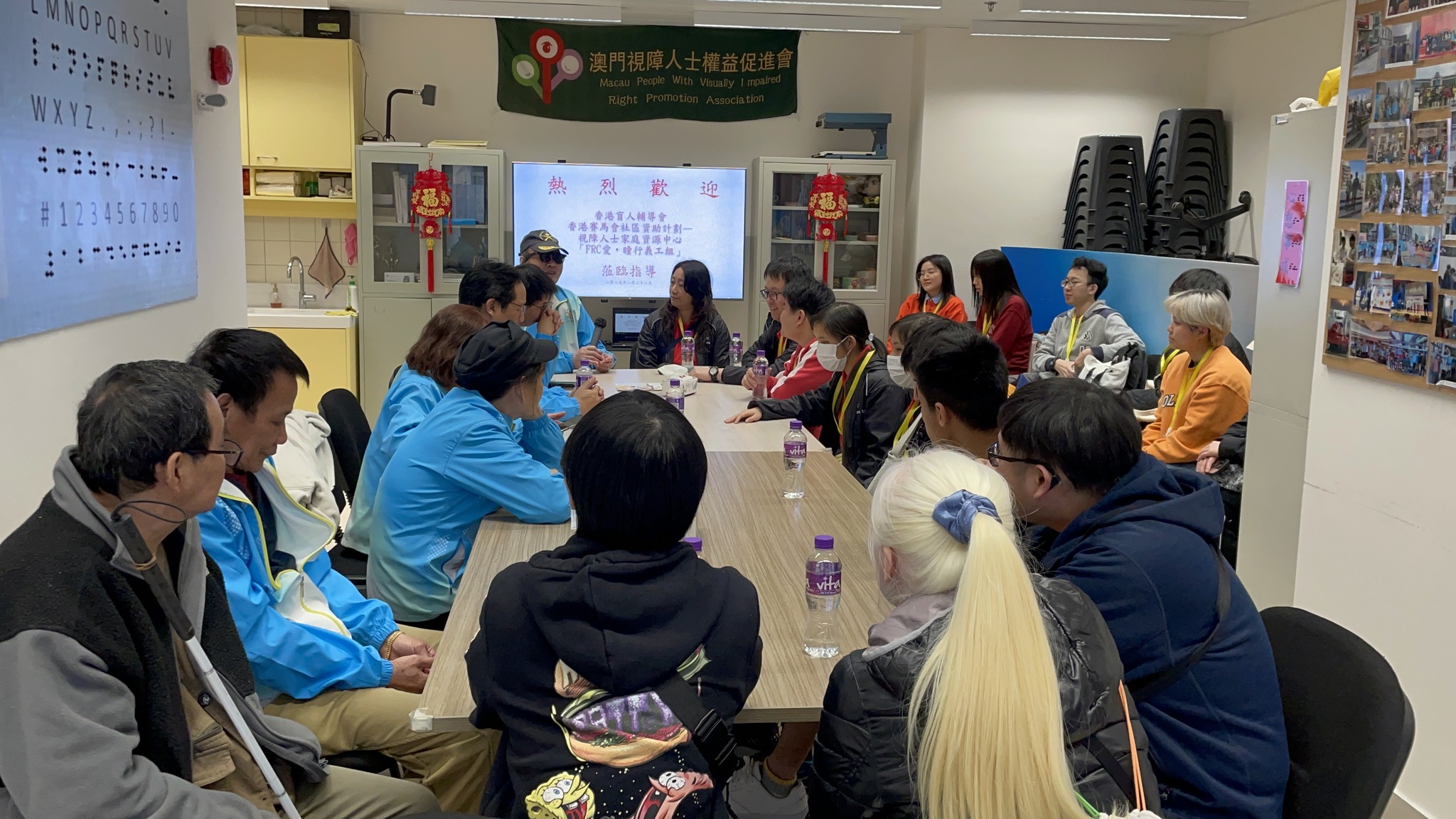
Twelve visually impaired volunteers from FRC “Between Us Volunteer Team” along with three university student ambassadors, first visited the Macau Assistive Devices Resource Centre for a tour and exchange. In addition to learning about the professional assistive devices provided for people with different disabilities, including manual and electric wheelchairs, self-feeding machines and adjustable laundry drying racks, they also explored more about assistive tools designed specifically for the visually impaired, such as Braille talking rice cookers, tactile maps, and audible lost item finders, providing an enlightening experience for all participants.
In the afternoon, the group visited the Macau People with Visually Impaired Right Promotion Association, engaging with Chairman Mr. Chiu Yu Yuk, President Mr. Koon Tak Wai, and visually impaired members of their Association. They discussed the educational support and community activities available for the visually impaired in Hong Kong and Macau, allowing the group to understand the challenges faced by visually impaired in Macau, and they were deeply moved by their perseverance in striving for their rights.
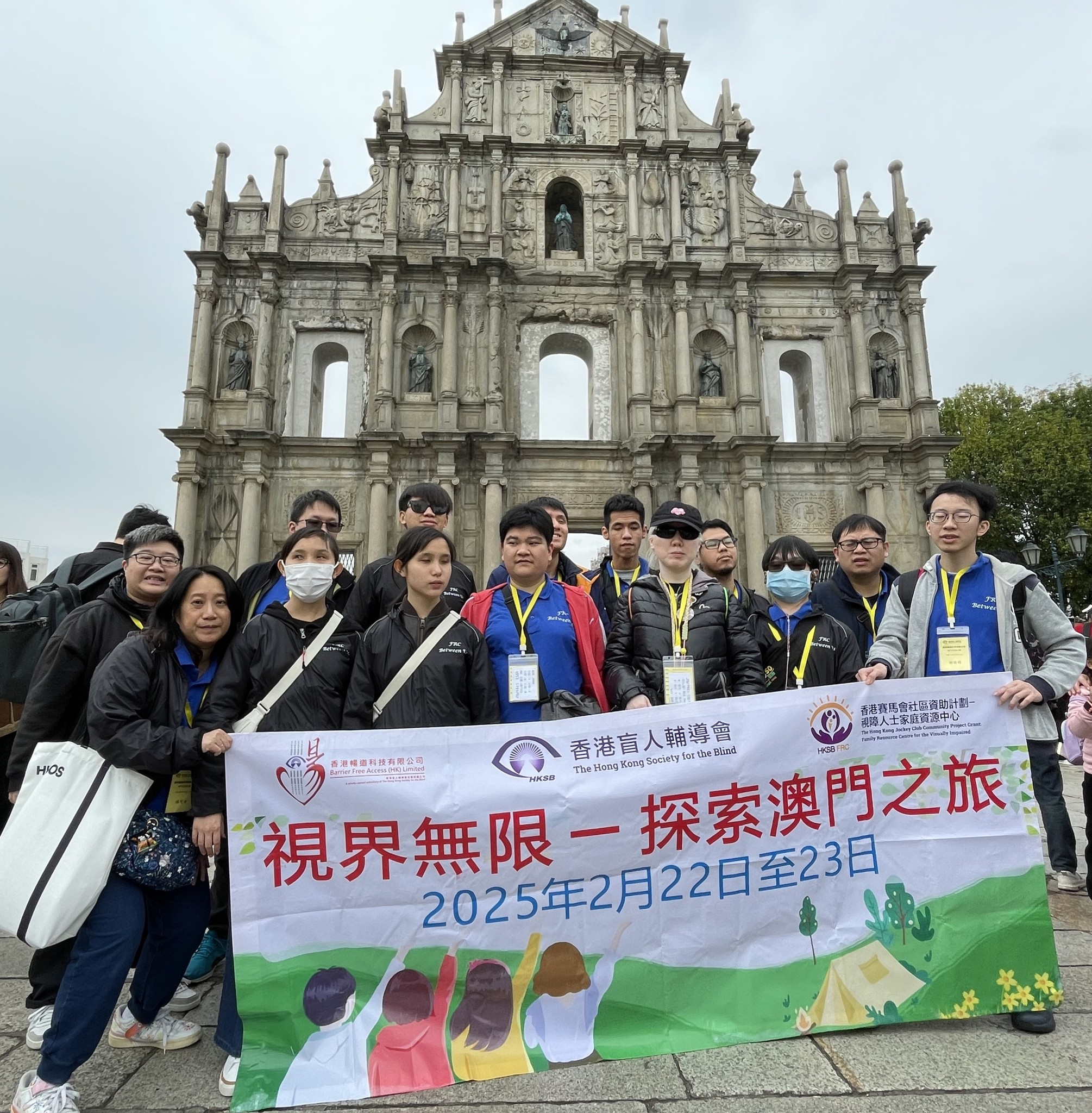
On the second day, the group visited famous Macau landmarks, including Rua de S. Paulo, the Macau Tower, the Ruins of St. Paul's, and the Fortaleza do Monte. This provided a comprehensive understanding of Macau’s historical and cultural features, it was like taking a vivid Macau history lesson, and the participants all felt that they had gained a lot.
Visiting Social Services in Guangzhou and Foshan to Promote Multilateral Exchanges
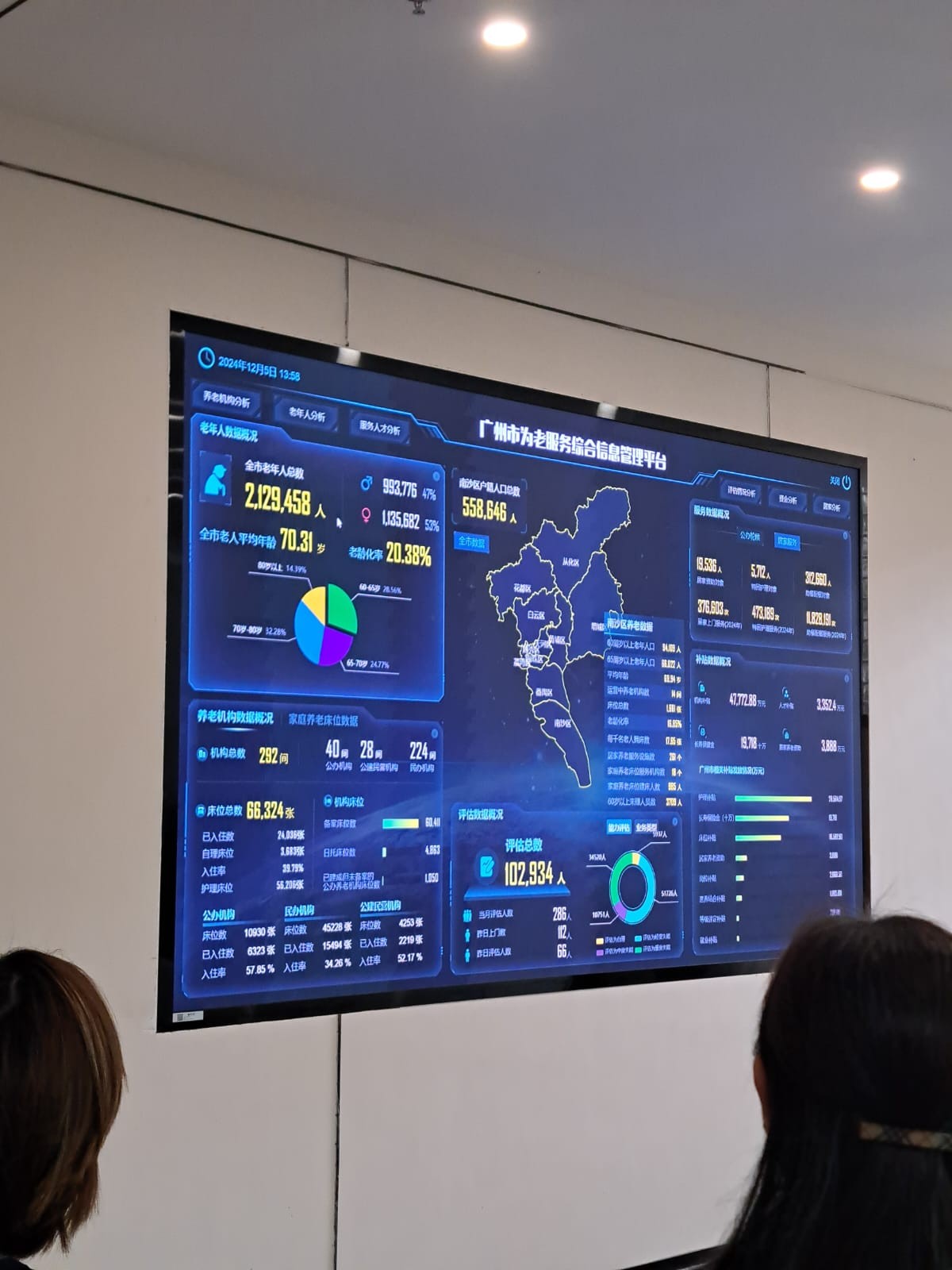
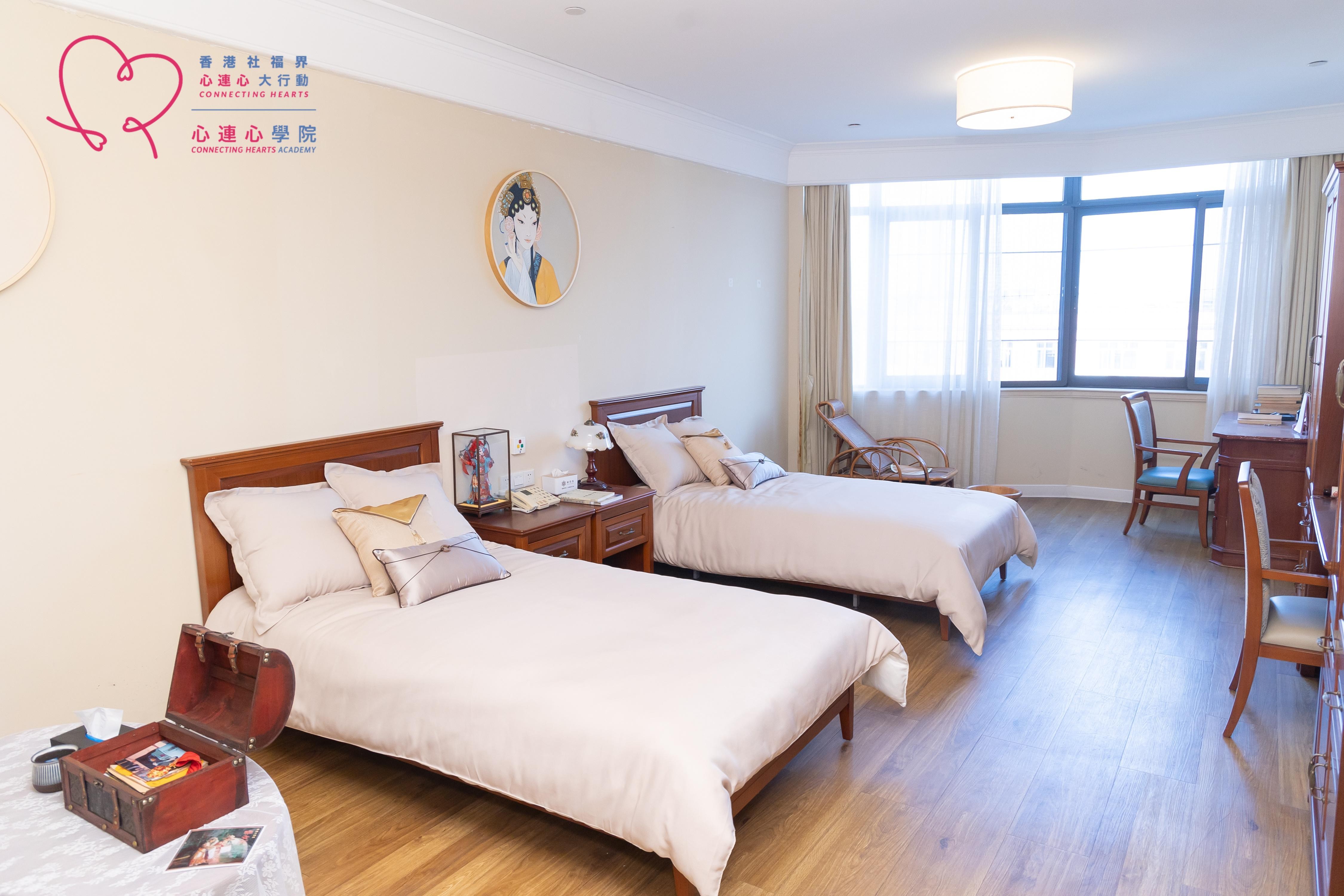
The "Connecting Hearts" exchange tour to Guangzhou focused on studying elderly care services. Through the visits, they learned that the local care homes are spacious and adopt a "micro-living circle" model, enabling seniors to have all their daily needs met within the facility. In addition to housing an in-house hospital, these facilities also offer both Chinese and Western meal services, a recreational center, and a convenience store, providing comprehensive support for residents. Some elderly care services have even implemented an artificial intelligence management system that monitors seniors' conditions in real time using a unified messaging platform. The demonstration of AI-enabled access control and safety alert systems provided many technological insights.
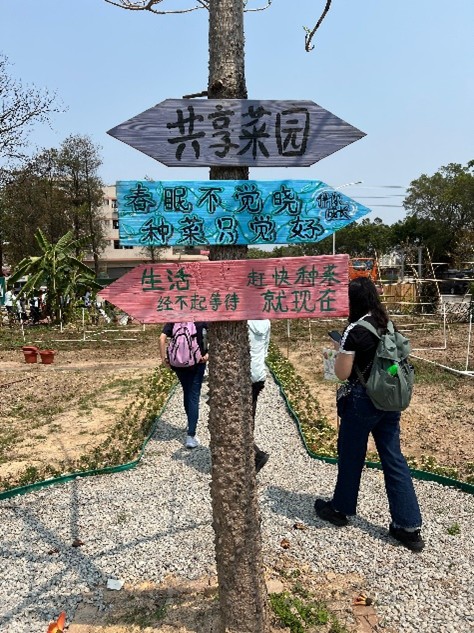
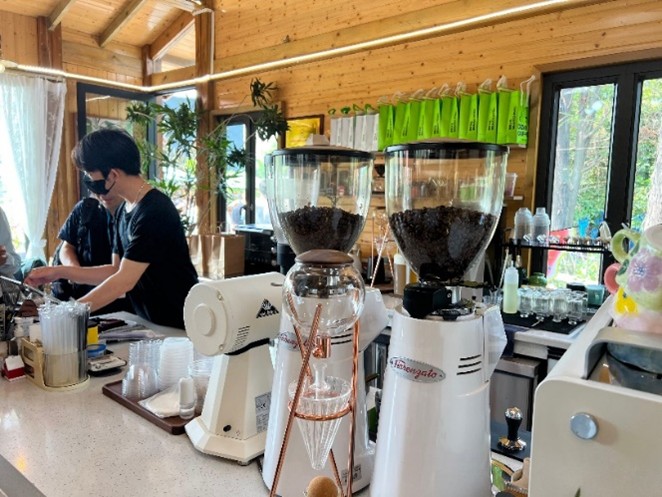
Similarly, the "Connecting Hearts" Foshan exchange tour visited several institutions to explore services related to rehabilitation for people with disabilities, elderly care, youth services, and community building. They found that community building can enhance local residents' participation and promote mutual assistance among neighbors. Local rehabilitation services take full advantage of community resources, integrating natural environments and horticultural therapy, and offering skills training that empowers people with disabilities to become self-reliant while alleviating family burdens. Additionally, the campus features a coffee social enterprise training platform that provides employment opportunities. This visit offered invaluable insights for the development of related services in Hong Kong.
World Blind Union and Pacific (WBUAP) - Regional Seminar on Information Accessibility and Assistive Technology
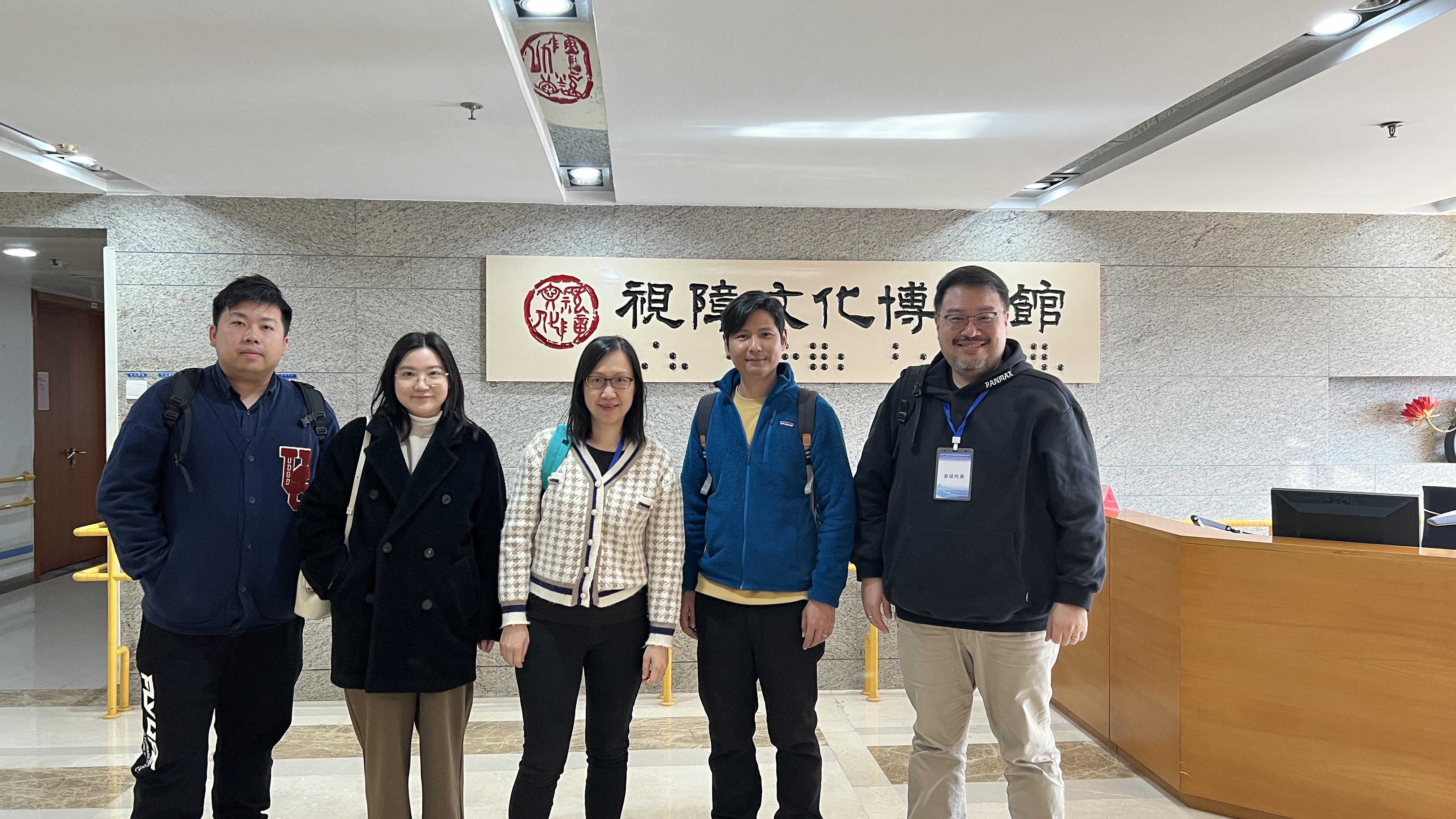
The Chief Executive of The Hong Kong Society for the Blind, the Acting Director (Vocational Rehabilitation Services) of the Hong Kong Society for the Blind and three staff from Barrier Free Access (HK) Limited (BFAHK) have attended the World Blind Union Asia and Pacific (WBUAP) Regional Seminar in Beijing, China at December 2024. This regional seminar was jointly hosted by the World Blind Union Asia and Pacific and the China Association of Persons with Visual Disabilities, which featured Information Accessibility and Assistive Technology.
Over 80 participants, including local officials, academics, business representatives, leaders from different countries attended the event. During the conference, many guest speakers who are dedicated in the fields of visual impairment, information technologies, rights protection and education delivered their inspiring speeches and forward-looking insights on the latest development of assistive technology and information accessibility. BFAHK also took part in the paper sharing session and shared our experiences on how digital accessibility testing and assistive technology can work together for social inclusion in Hong Kong.
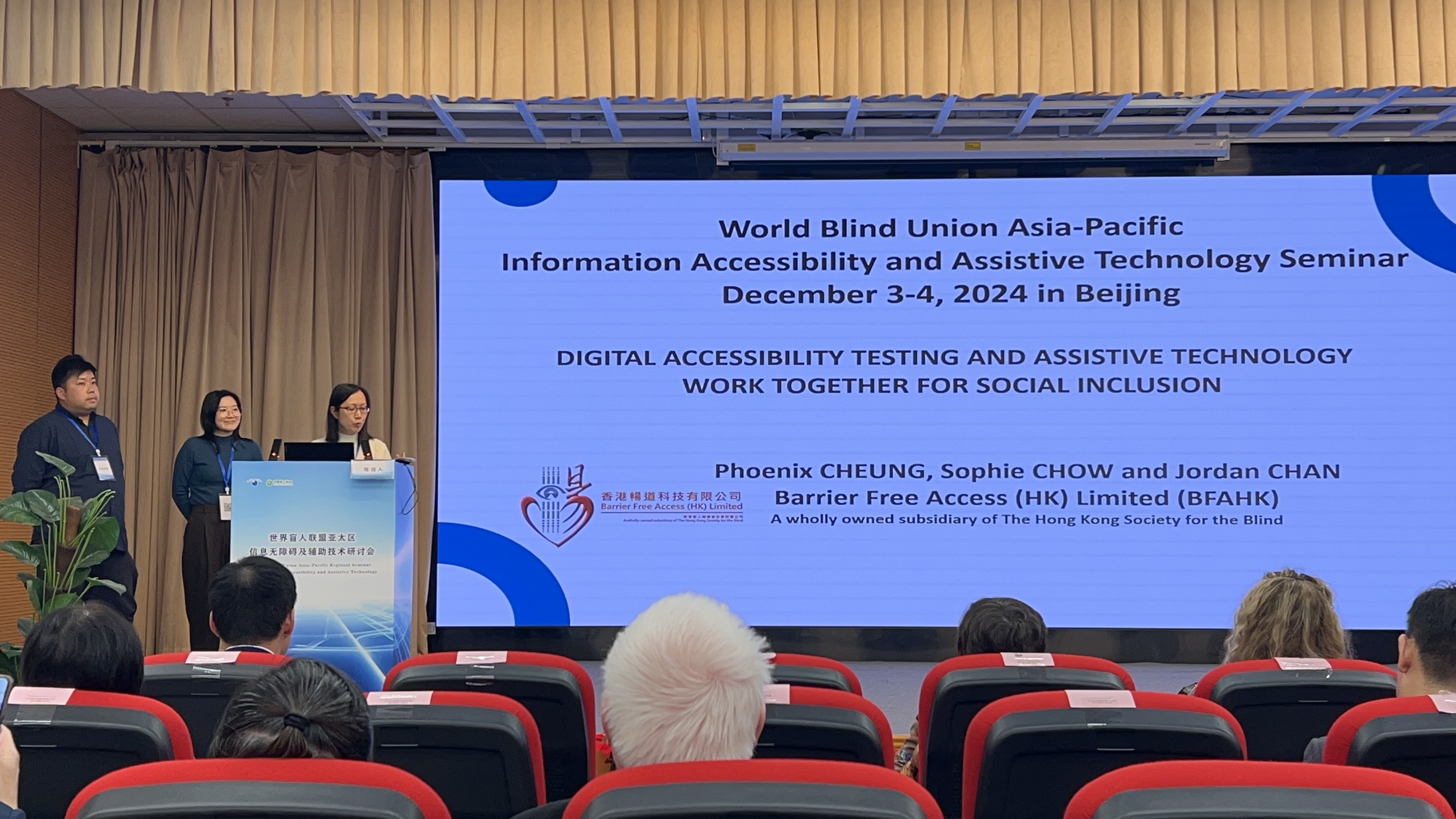
To foster mutual exchange and inspire more innovative ideas, a number of well-known mainland companies like Tecent, DiDi, Alibaba and Vivo were invited by the organizer to share their passionate experiences on how technological initiatives can be applied in our daily lives to facilitate the mobility and information accessibility for visually impaired. There was also an assistive technology exhibition outside the conference venue to showcase a large variety of assistive equipment, including AI robotic Guide Dog, smart canes, wearable devices, text-to-speech readers, etc., it really extended our horizons on the scope of assistive equipment nowadays, especially those operated by AI technology.
The seminar ended on a high note following the visits to the Palace Museum and the National Accessibility Exhibition Hall. We were stunned by various structures in the Palace Museum and deeply proud of the China’s rapid development in building a barrier free society.
The development of AI technology has evolved dramatically in recent years. It is worth exploring possibilities to incorporate the advanced technologies into our core services so that the quality of life of the visually impaired can be enhanced digitally and at the same time, our services can become smarter to meet our service users’ specific needs.


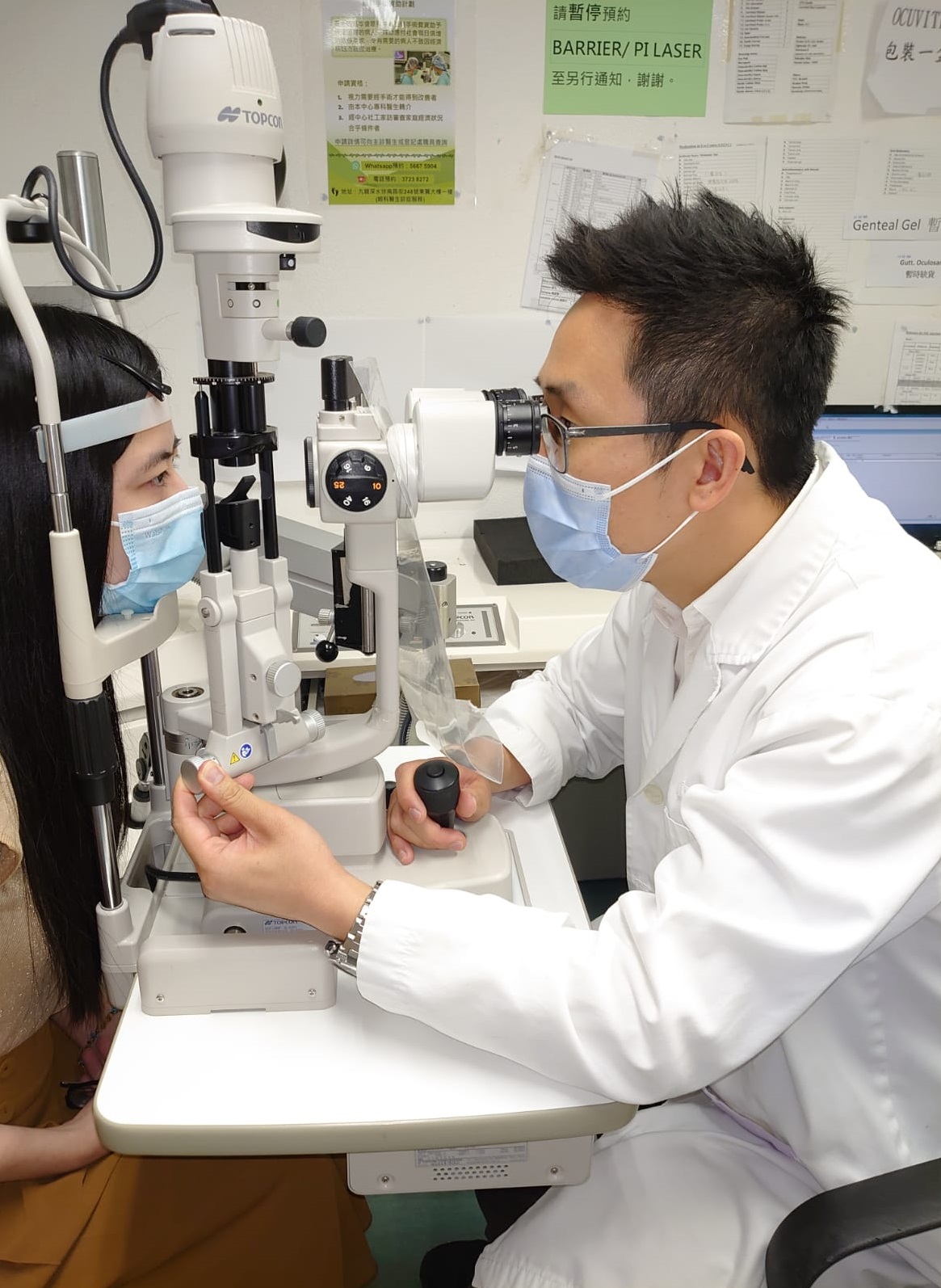












 Our Stories
Our Stories Photo / Video
Photo / Video





























